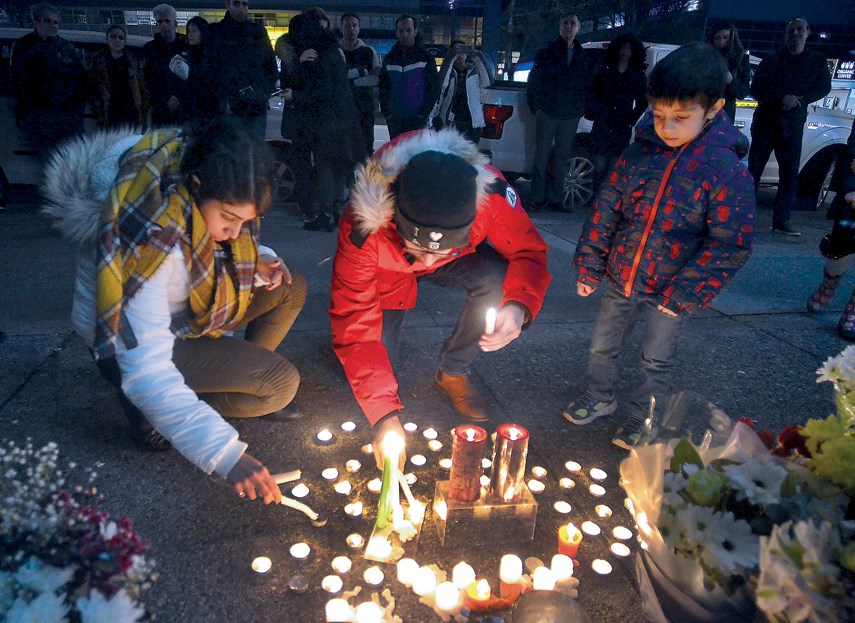Members of the North Shore’s Iranian Canadian community remain skeptical of Iran’s explanations for the downing of Ukraine International Airlines Flight 752, a position now shared officially by Canada's Transportation Safety Board.
The TSB provided an official response to Iran’s report on the downing of the flight Thursday morning.
The investigation report from Iran's Civil Aviation Organization said a military operator fired two surface-to-air missiles after misidentifying the Boeing 737-800 as a "hostile target" and despite not getting a green light from superiors, as per procedure. They officially blamed "human error. All 176 people on board were killed, including 55 Canadian citizens and 30 permanent residents. At least seven of them lived on the North Shore.
TSB chair Kath Fox said the "unprecedented situation" where the Iranian military effectively oversaw the investigation compelled the agency to speak out, noting that dozens of its comments and questions went unanswered in the final report.
Iranian officials also did not address what actions Iran's military has taken to prevent a repeat occurrence. Fox added Canada's air-safety investigator does not believe the risk to commercial airlines operating in Iran's airspace has been reduced.
Nassreen Filsoof, president and founder of the North Vancouver-based Canadian Iranian Foundation, said she remains incredulous.
“I'm sure it was done purposely. It couldn't have been human error,” she said, adding this is a common perception among the Iranian expats. “We lived in Iran. We are familiar with their system.”
Ali Najafi, owner of Apadana Travel, which booked flights for some of the victims, was watching the news and agrees that risk remains.
“In general, yes, I think it's still not safe over there,” he said. “There are a lot of unanswered questions.”
If Iran was on such high alert for attack, they should have grounded commercial airliner traffic, he reasons.
But, Najafi added, there are a lot of Iranian Canadians who will want to see their relatives or attend to businesses in Iran, and he expects travel will resume once the pandemic subsides, even with that risk.
Filsoof said she is also disappointed in the Canadian government for being timid in their approach to Iran.
“They’re trying to be very conservative in this,” she said. “They just shut up. I don't know why. They don't have as much enthusiasm about Iran affairs as they have for other countries.”
Both Najafi and Filsoof said the community continues to mourn, more than a year later.
“I'm just so sorry for the people who have lost their family and a lot of educated people on that plane. Doctors, professors, teachers, dentists. That is an asset for Canada,” Filsoof said. “And we lost them all. That is sad. That is sad for the country and for the relatives, of course.”
Kourosh Doustshenas, whose partner Forough Khadem was among the victims, said the final report was disappointing but not unsurprising. He said the investigation team wasn't capable of producing an independent report, calling the final product "full of lies and misrepresentations."
"I can't really move on," he said in an interview with the Canadian Press. "This report, it doesn't help (in) any way or shape to tell the truth, or provide any kind of justification of what happened."
- with files from Jordan Press, Maan Alhmidi and Christopher Reynolds, The Canadian Press



